From the Top of the Mountains We Can See Invisible Monuments
The Maersk’s case
According to traditional Aymara thinking, the past is always presented in front of us as a symptom of reflection for what is the present, leaving behind what is not yet lived, the future time; an idea of time quite different from the moira of the history of Western philosophy. In this way, this project intends to seek, step by step, past events for the reconstruction of collective memory with the objective of safeguarding ourselves from misfortunes, losses and crimes, these manifested by the capitalist, colonial and patriarchal system.
For the performance “The Maersk’s case”, a reflection was elaborated, in two moments, in two days, about the current system of the oil extraction industry and the destructive impacts themselves to nature and society, passing also by the maritime tourism industry so powerful in the city of Porto, Portugal.
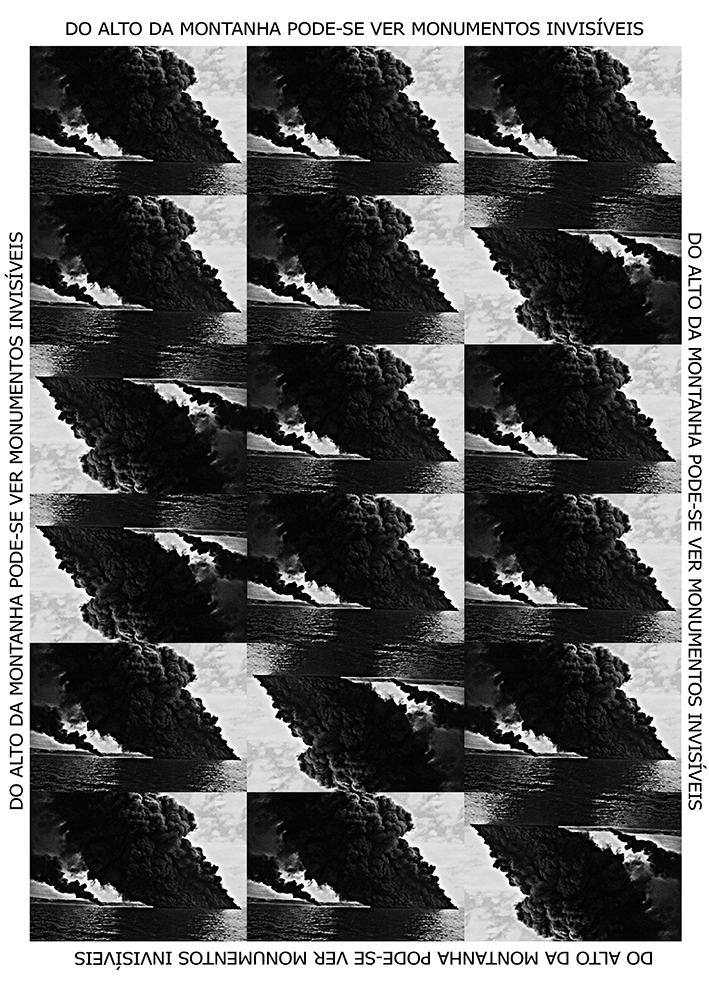
Using the performing practices of talking and walking, this work of guided tour performance, at first, on November 23, the participants met at a high point in the city of Porto, Espaço Musas, for a conversation in around the theme of the oil extraction industry. In an exercise to recognize the landscape, from the top of the mountain, we observed in the landscape itself the cartographic structure of the system that shelters and sustains this industry that oppresses peoples and communities beyond the abyssal line. We will talk about topics such as fracking practices, oil extraction on the high seas, globalization, transport and logistics, the idea of production and consumption. From the top of the mountain, on the horizon, we will find images of the present that surrounds us and keeps us away.
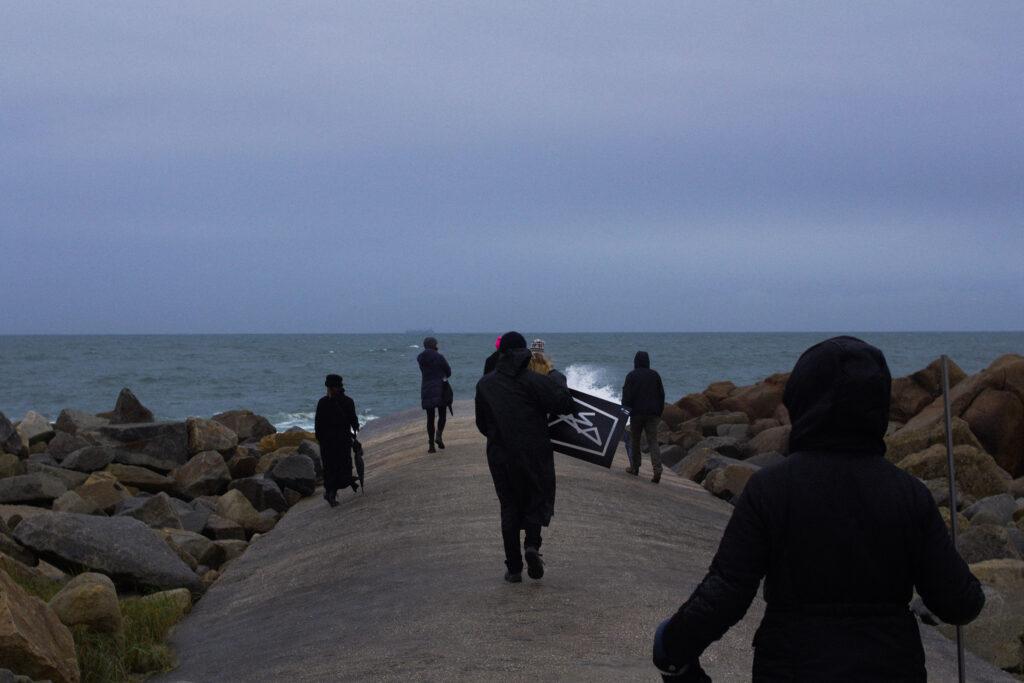
In a second moment, on November 24th, this time in the lower latitude of the city, next to the sea, we walked a 2 km stretch to understand the history of the Danish oil ship Jacob Maersk that on January 29, 1975, it exploded with 50 thousand tons of oil near the edge of the cities of Matosinhos and Porto, covering the cities with toxic smoke and strongly harmful to health. In addition, this accident was responsible for the destruction of marine and terrestrial biodiversity, reaching the thick masses of oil to the beach strip in a few days.
Following the shore in this proposal of a walk performance to recognize this fact of environmental crime, we distribute different landmarks every 260 meters (length of the oil tanker) that helped us to reconstruct this invisible monument that allows us to perceive, among so many things, the modern Portuguese context from entry into the European Union to changes in landscape, cultural and social habits in the region. Thus, by the sea, we were able to imagine a future.
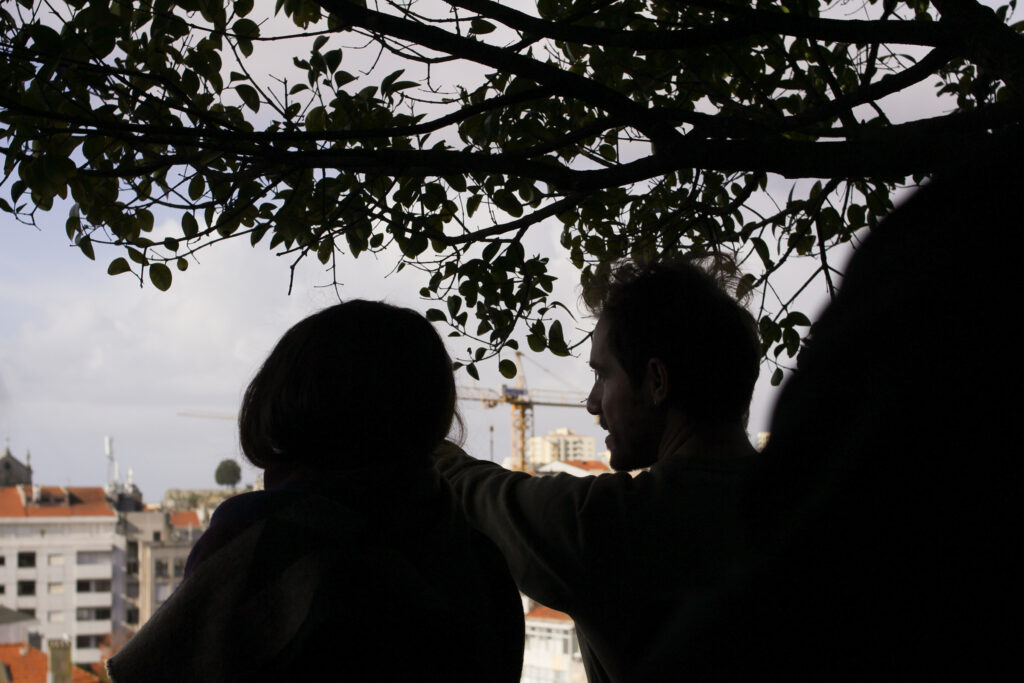
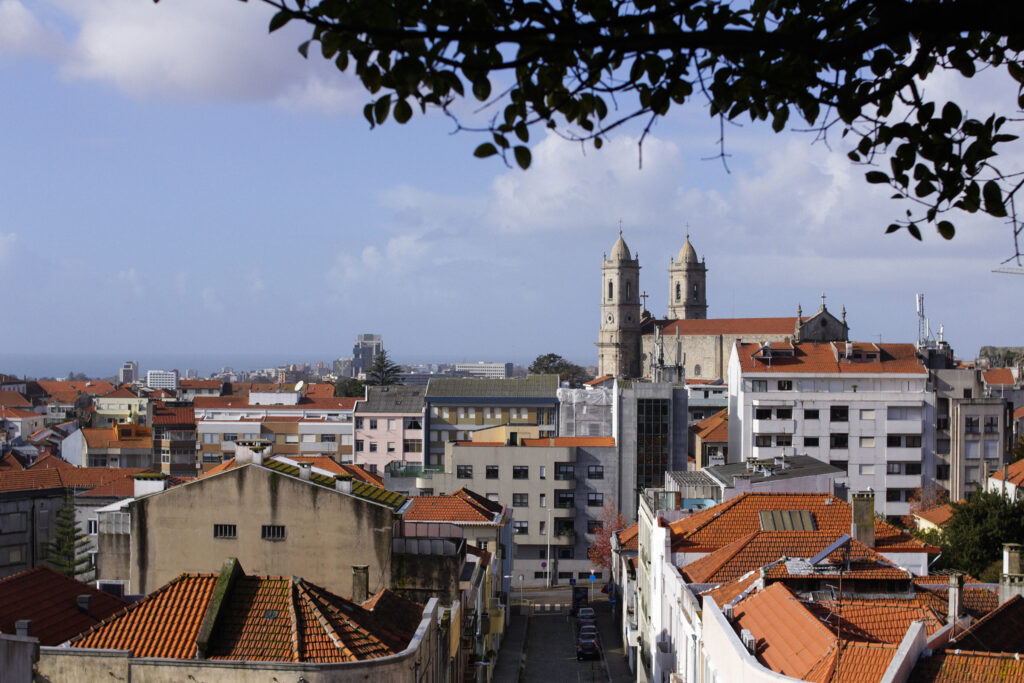
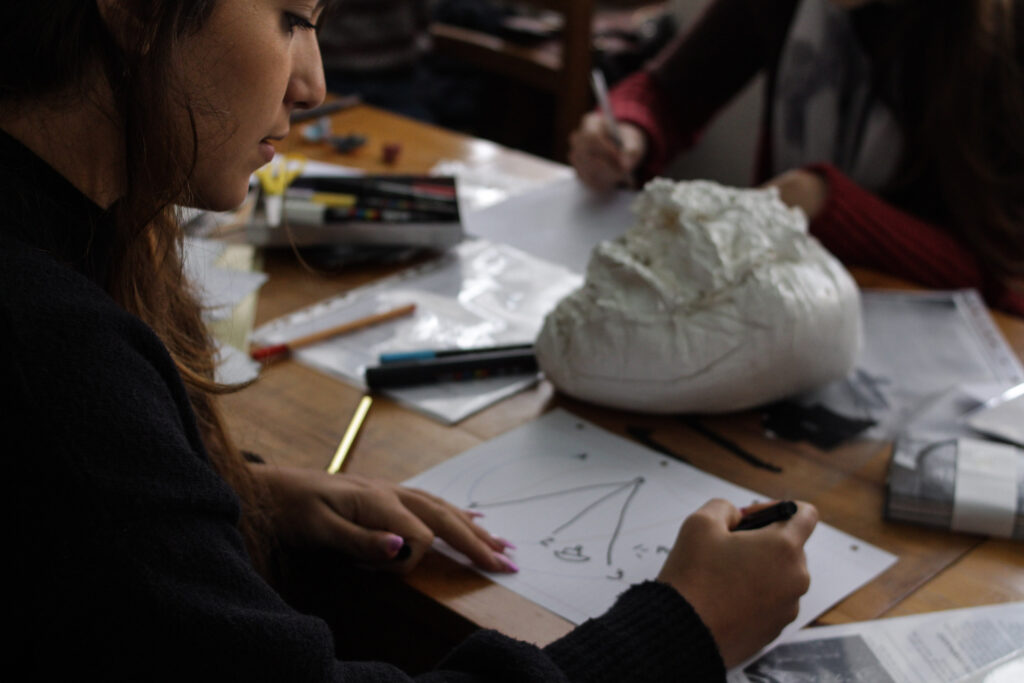
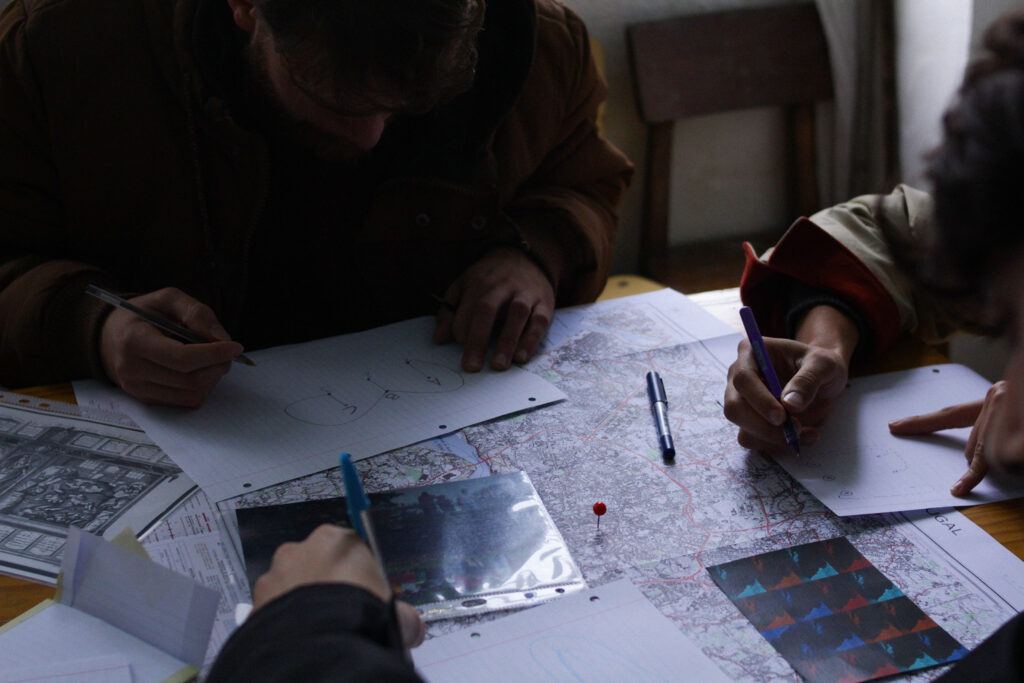
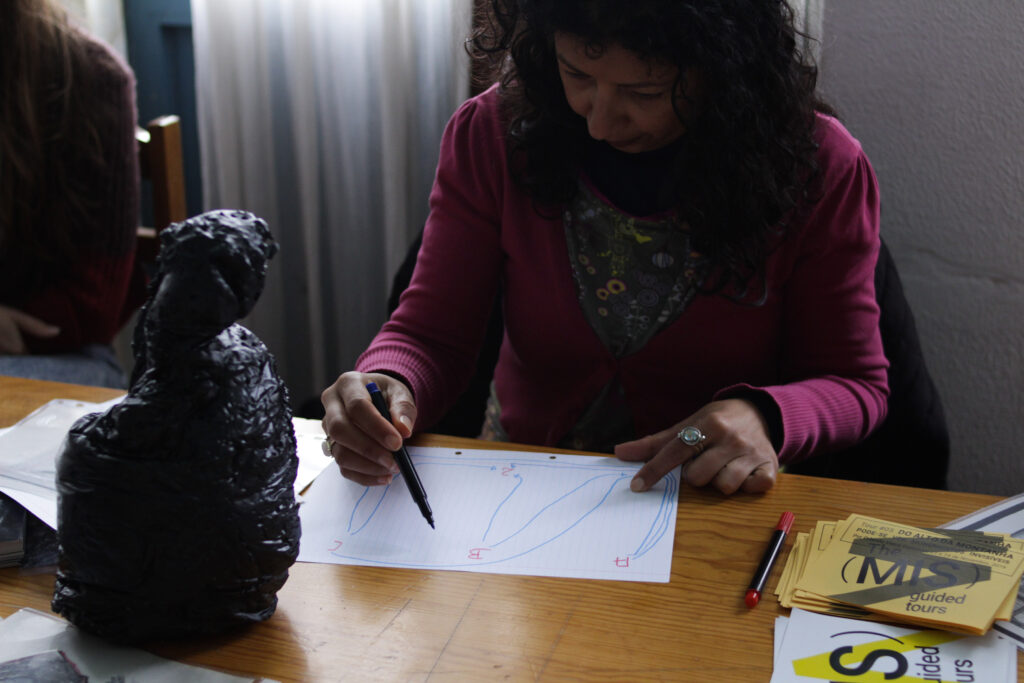
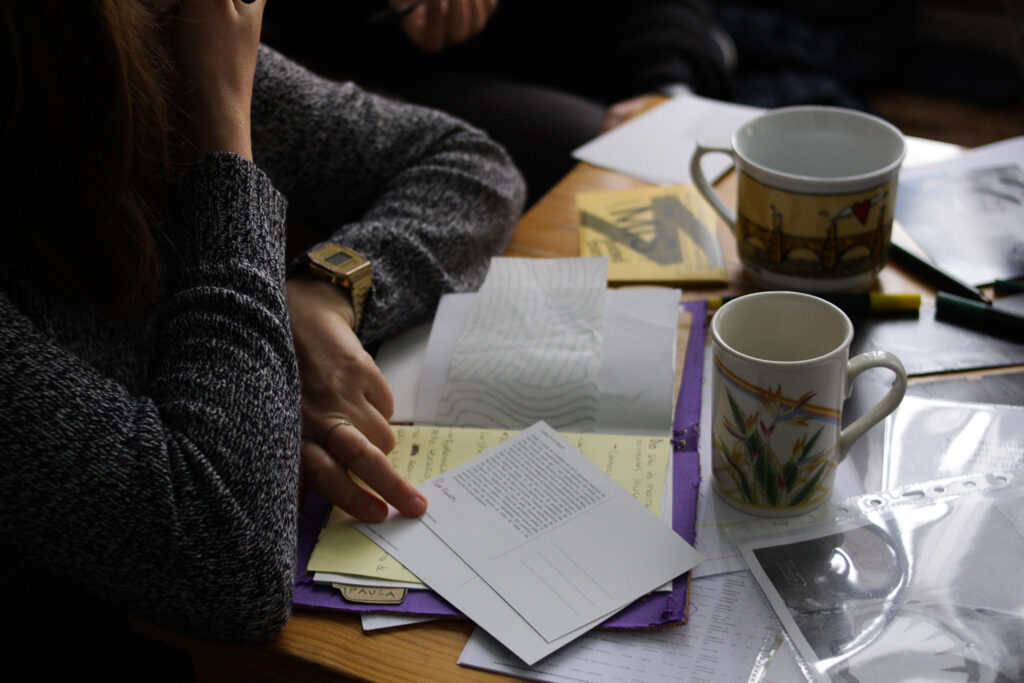
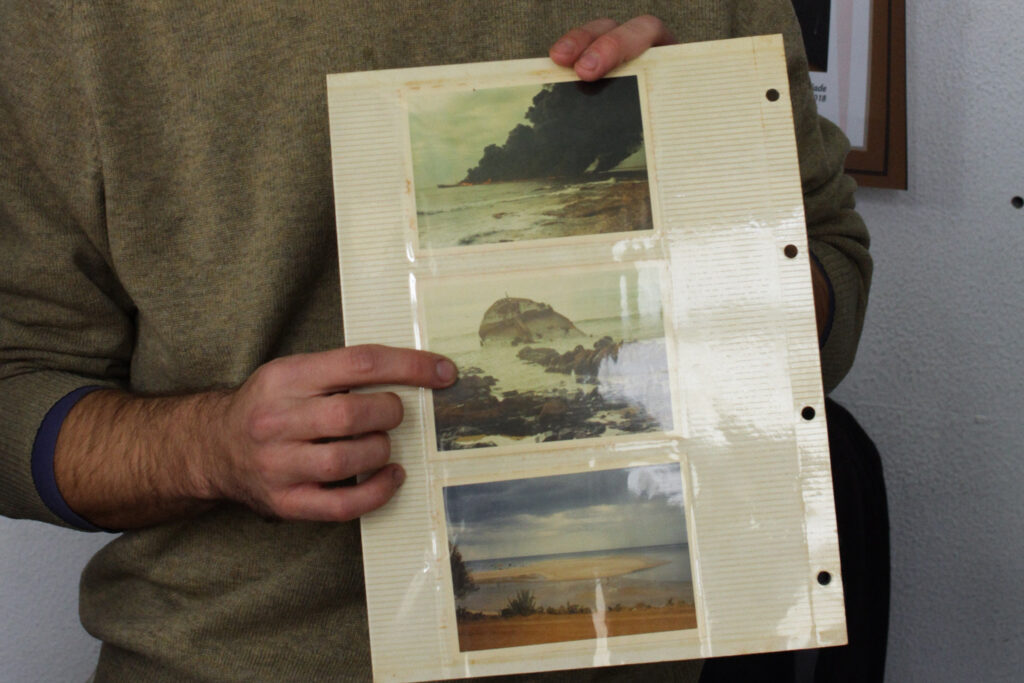
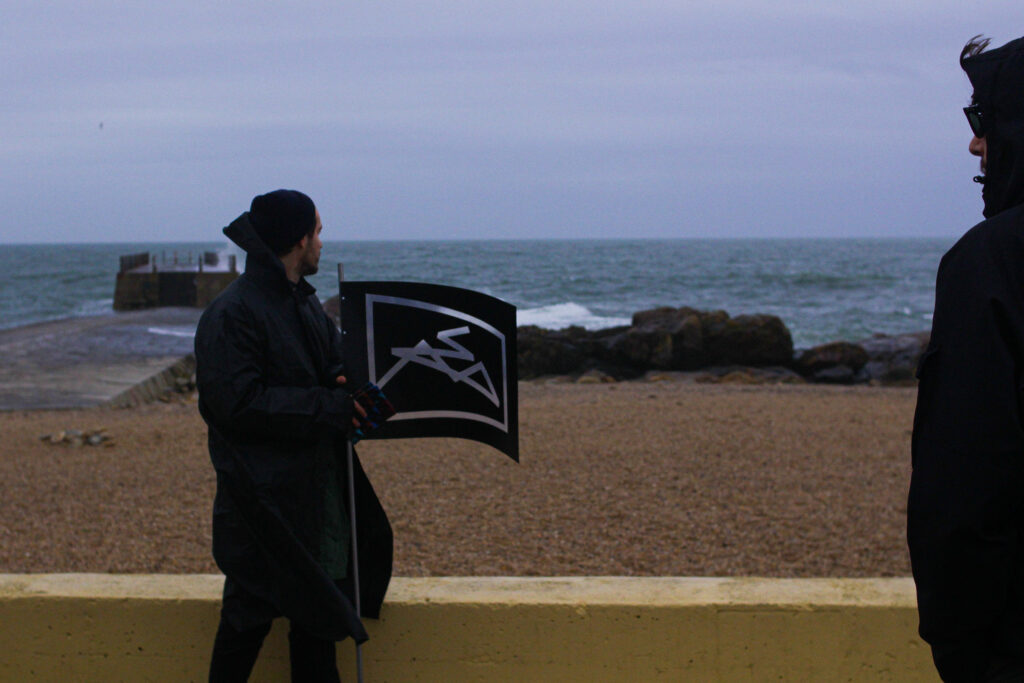
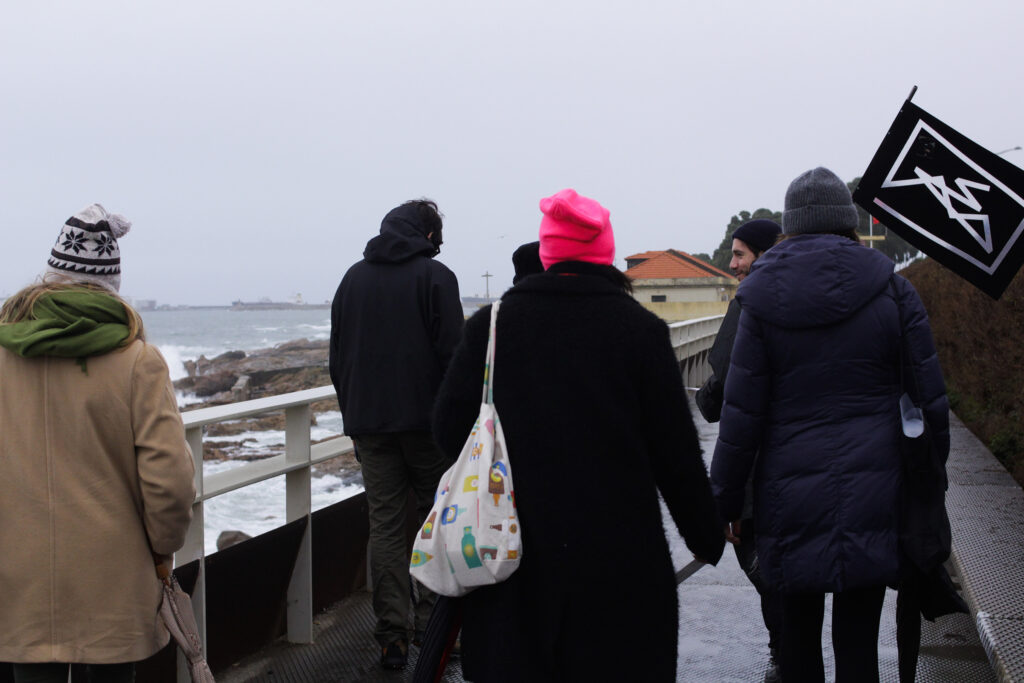
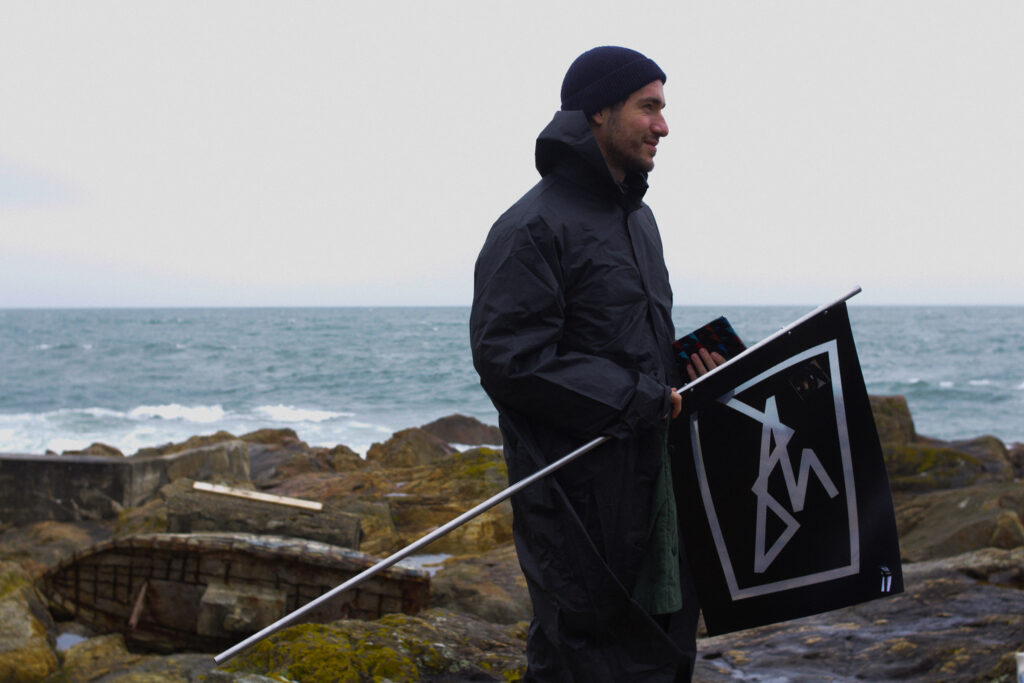
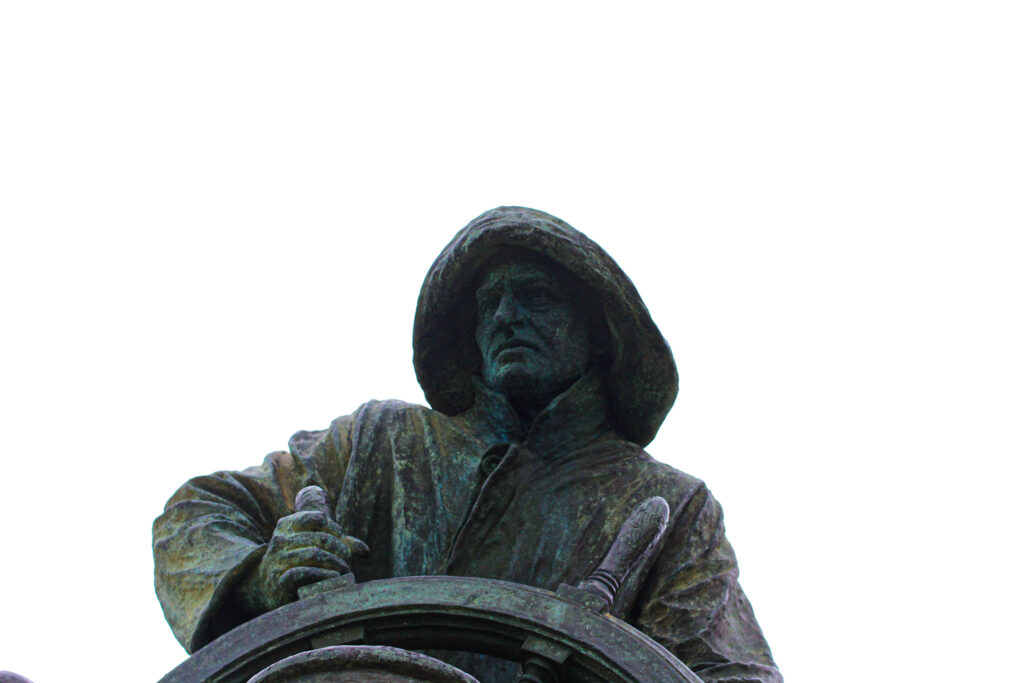
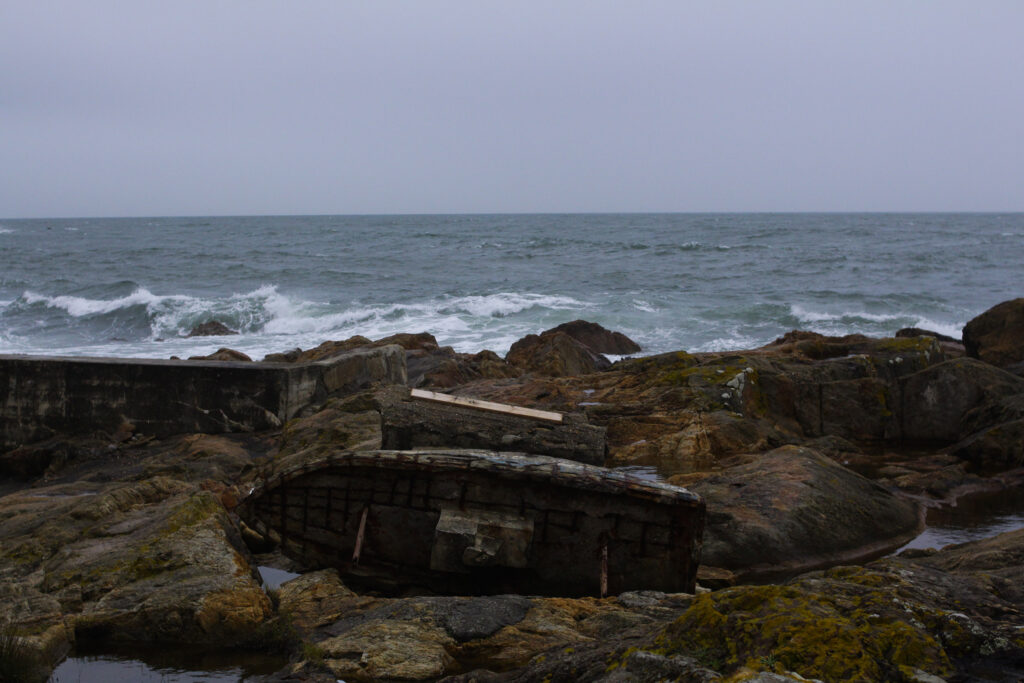
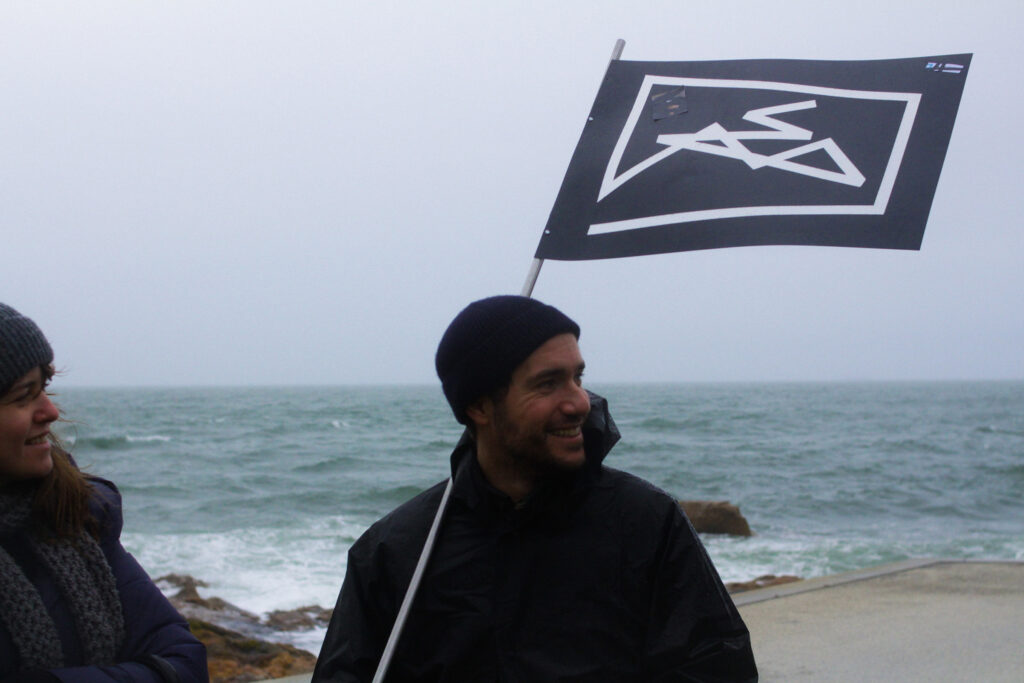
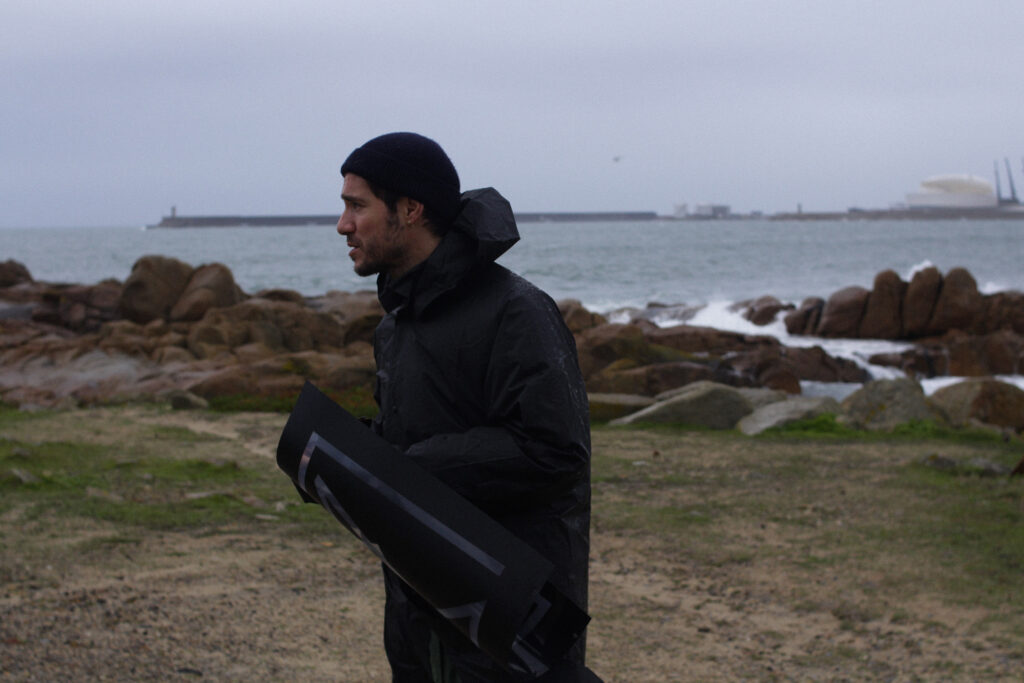
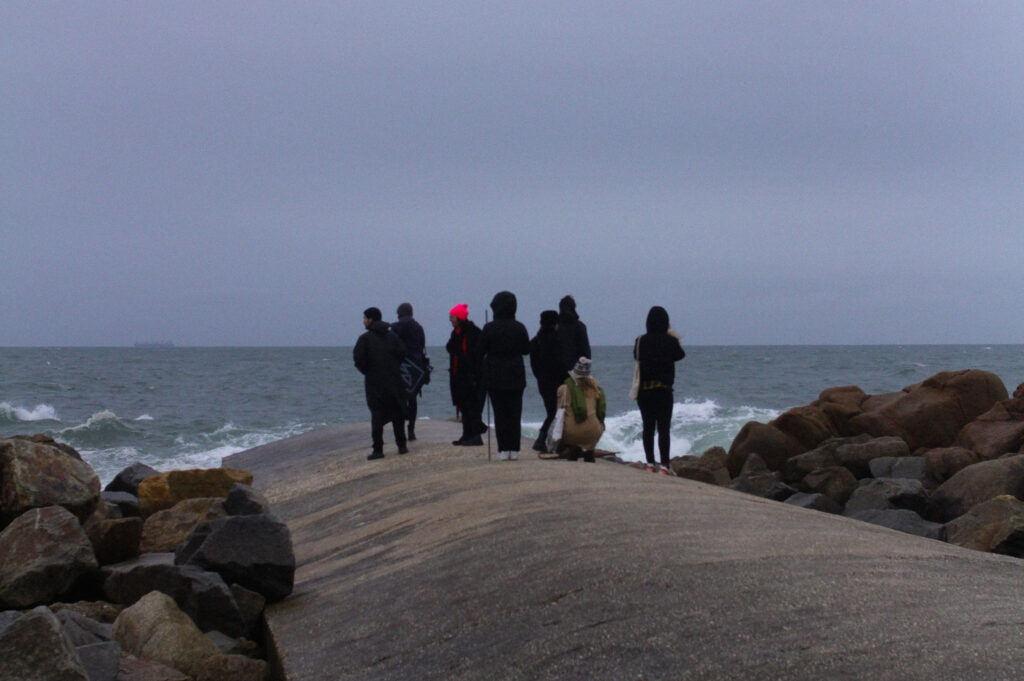
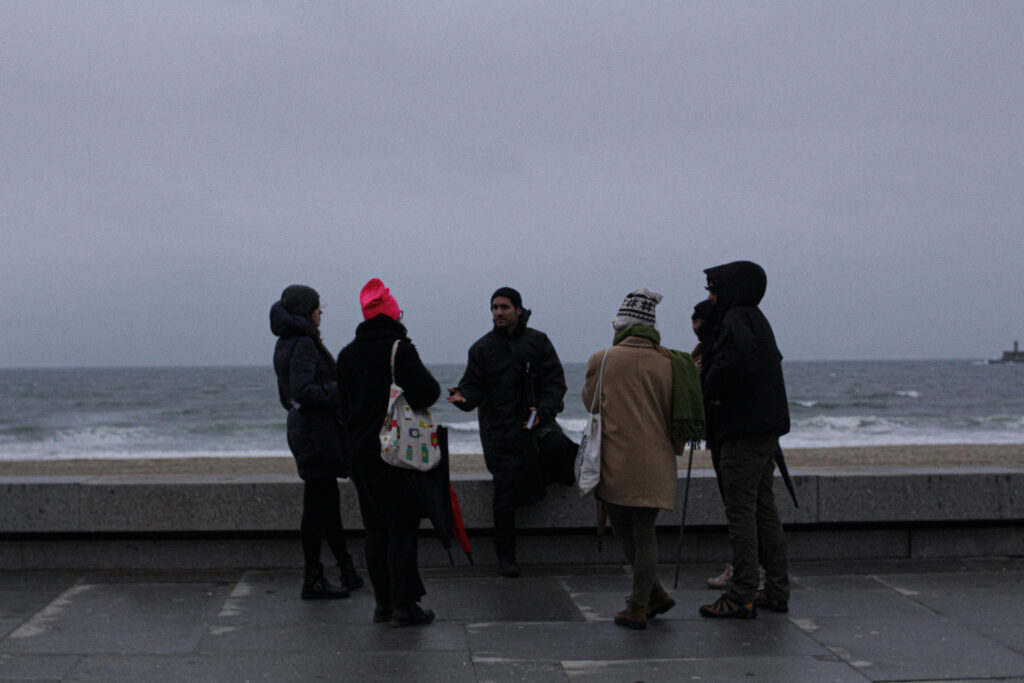
© Coletivo MAAD